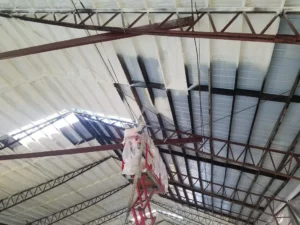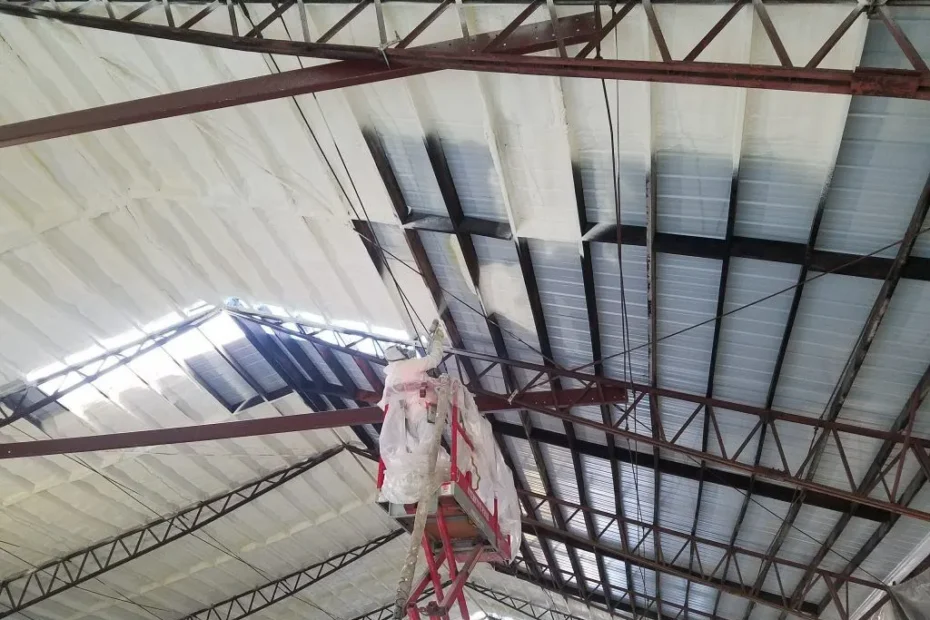
In the world of commercial insulation, the wise choice of materials and techniques can lead to significant savings on energy bills and a remarkable boost in overall efficiency. Let’s explore how the right insulation solutions can make a substantial difference in the long-term costs and performance of commercial buildings.
Understanding the Benefits of Commercial Insulation
When it comes to commercial insulation, the advantages extend beyond just keeping a building warm in the winter. Quality insulation plays a vital role in creating a comfortable indoor environment year-round, regulating temperature fluctuations efficiently.
Moreover, proper insulation contributes to a quieter and more peaceful workspace by reducing noise transmission from both inside and outside the building. This noise control aspect is often an underrated benefit of investing in high-performance insulation solutions.
One of the key benefits of commercial insulation is its impact on energy consumption. Buildings with inadequate insulation lose a significant amount of energy through walls, roofs, and windows, resulting in higher heating and cooling costs. By installing effective insulation, businesses can minimize these energy losses and see a noticeable improvement in their utility bills.
Additionally, quality insulation enhances the overall sustainability of a commercial building. By reducing the energy demand for heating and cooling, businesses can lower their carbon footprint and contribute to environmental preservation. This eco-friendly aspect not only benefits the planet but also aligns with modern consumers’ growing emphasis on sustainability.
In summary, the benefits of commercial insulation are vast and multifaceted. From cost savings and energy efficiency to improved comfort and environmental responsibility, investing in quality insulation is a decision that yields long-lasting advantages for both businesses and the environment.
Maximizing Energy Efficiency Through Proper Insulation
Maximizing energy efficiency in commercial buildings starts with a comprehensive approach to insulation. By carefully selecting the right type of insulation material and ensuring proper installation, businesses can create a thermal envelope that optimizes energy performance.
An often overlooked aspect of energy efficiency is air sealing in conjunction with insulation. Leaks and gaps in the building envelope can lead to significant energy losses, negating the benefits of even the best insulation. Proper sealing, along with insulation, forms a holistic solution that enhances overall energy efficiency.
Choosing insulation with a high R-value is crucial for achieving optimal energy efficiency. The R-value indicates the material’s resistance to heat flow, with higher values offering better thermal performance. By selecting insulation with an appropriate R-value for the building’s location and climate, businesses can maximize their energy savings.
Moreover, considering the long-term benefits of reduced energy consumption, the initial investment in premium commercial insulation often results in significant returns. Lower utility bills, improved indoor comfort, and a reduced environmental impact are all compelling reasons for businesses to prioritize quality insulation solutions.
In conclusion, the quest for enhanced energy efficiency in commercial buildings is intricately linked to the choice of insulation. By opting for top-quality materials, proper installation, and strategic insulation planning, businesses can create a sustainable and economically sound operation that stands the test of time.
By prioritizing commercial insulation that is tailored to the specific needs of a building, businesses can optimize energy efficiency and reduce expenses. Investing in quality insulation translates not only into financial savings but also into a more sustainable and environmentally friendly operation.
